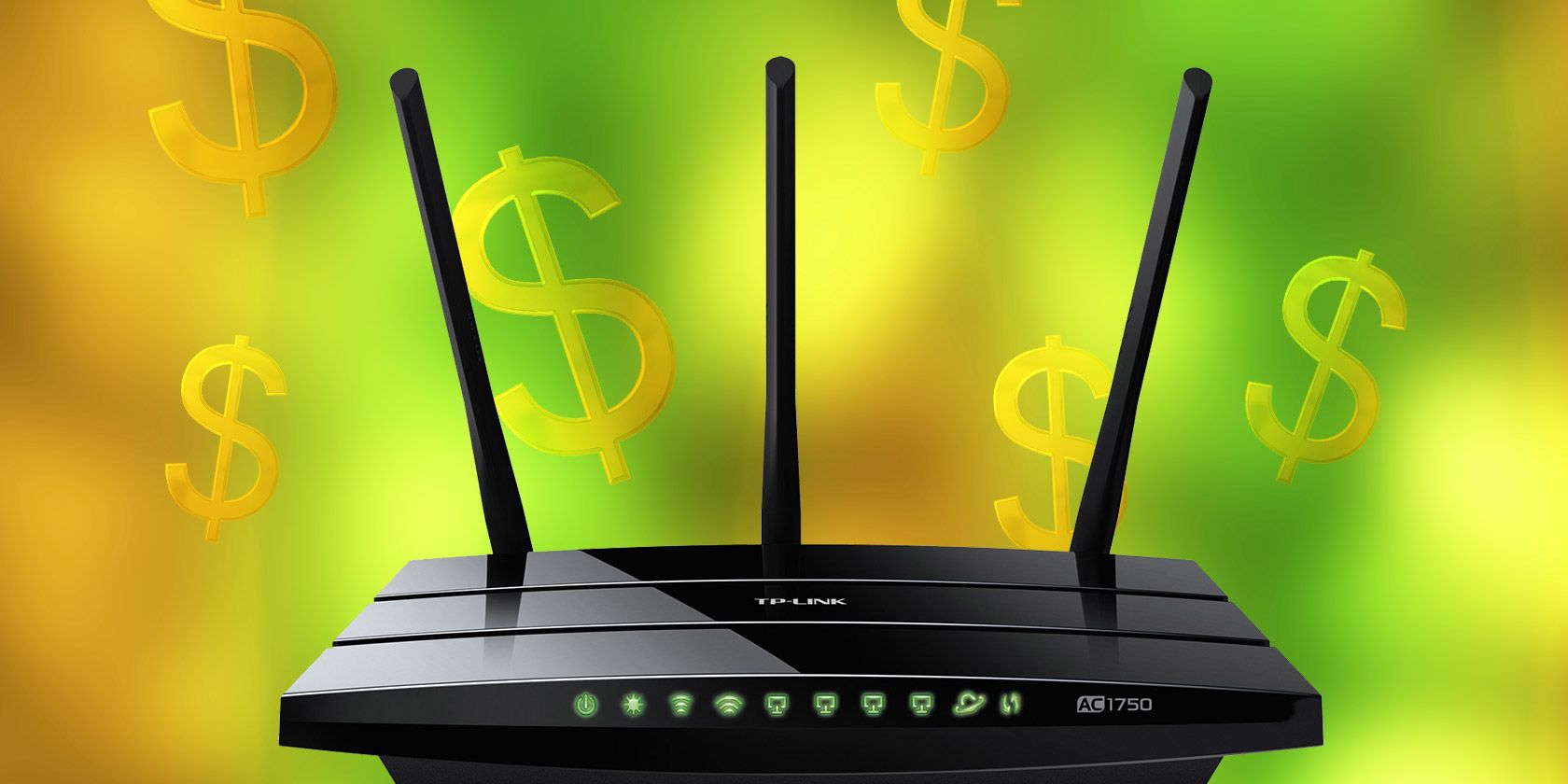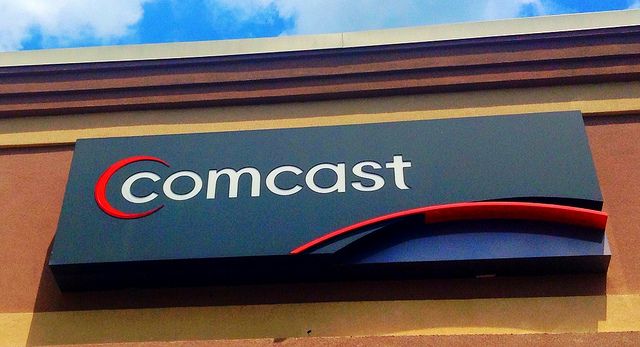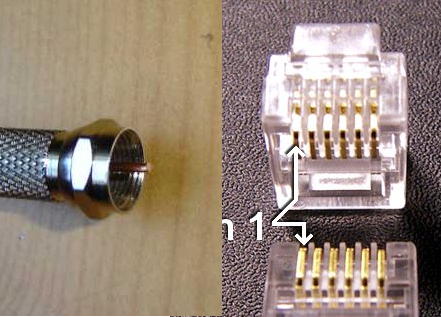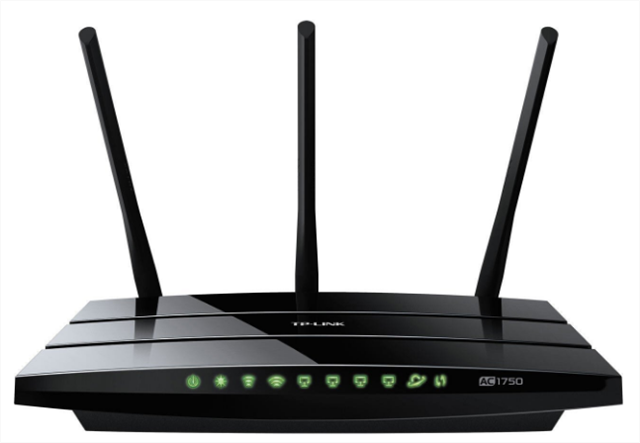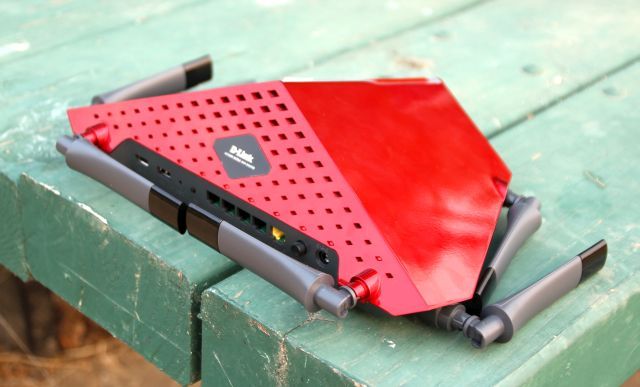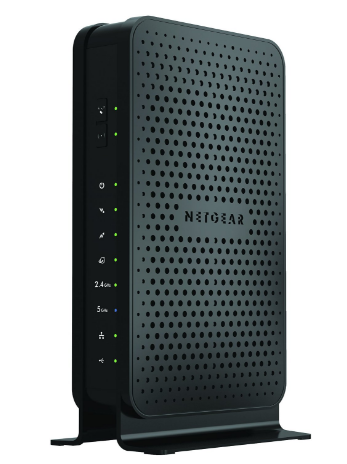Internet providers don't win ethics or customer service awards. Just the opposite -- they perennially rank among the least liked companies in the United States. And they didn't get there by chance: providers work hard to earn your hatred. One of their dirtiest tricks is equipment rentals.
Check your detailed billing statement. If you see any rental charges, you're getting ripped off. No one with internet service should rent equipment. If there's any rental charge, every bill paid until doomsday will include that charge. Fortunately, getting rid of those rental fees has never been easier.
How to Stop Paying Equipment Rental Fees
It might not seem like much, but paying an extra $8 or $10 per month on your bill can add up over time. Getting a router and modem for less than $150 isn't hard to do, which means you'll be saving yourself some money within a year or two. It requires a bit of investment up front, but it could make a big difference in the long run. So how do you get started?
First, you'll need to buy replacement equipment. Typically, this means buying a router and a modem. A great option is a router-modem combo package, which combines the two into the same device. Often, buying a two-in-one device costs about the same as a router or a modem, saving you even more money.
The second, and perhaps more time-consuming, step is that you've got to return the rental equipment to your internet service provider (ISP). Almost all of them require returning the device by hand to a far-away service center. It's typically an exercise in pain. Internet chatrooms spill over with nightmare experiences after returning equipment. Don't get scammed. Get informed. Here are the official instructions from the ISPs:
Equipment Return Instructions
Because of the potential issues with returns, you need to do more than just drop the device off at the service center -- record that the instrument is in working order first and, second, make sure to get a receipt for the return. Finally, make sure that the ISP removes rental fees from your bill. Too many customers report problems -- and unfair charges -- for you to take this lightly.
On top of problems with returns, internet providers rent out extremely poor quality equipment, which oftentimes performs far below the latest routers. One would imagine that if you pay for the fastest internet connection speeds, the provider would provide faster equipment -- but that's not always the case! Providers are willing to take your money, but aren't always willing to provide consumers with a corresponding level of quality.
Another reason to avoid renting from the provider: if anything ever happens to the equipment, you are liable. In fact, even if your original contract "gives" you free equipment, if it ever fails (and it often will), you must pay the replacement cost, even if it breaks within a nominal warranty period. ISPs don't always charge up-front for failed equipment -- they may sneak a rental fee onto your monthly bills. Oftentimes, "free" equipment just disguises a monthly rental charge down the road.
What Kind of Router Do You Need?
The majority of those looking to ditch equipment rental fees will be upgrading from a router-modem combination package. Modems are tailored to your particular internet connection standard, which is, for the majority of users, either cable or digital subscriber line (DSL). A cable internet connection runs over what appears to be a coaxial cable line, while a DSL connection runs over what looks like a phone line. Each standard works only with a modem designed to process its signal. As a result, you'll see DSL modems and cable modems, but not both in the same package.
A few other kinds of modems exist, but they're relatively rare in the United States. For those of you with satellite, dial-up, or direct fiber-optic internet lines, you may want to look elsewhere for a router recommendation. Similarly, if you don't need a wireless connection, you don't need a fancy router.
After sorting out what kind of internet connection you've got, you can choose a router-modem. Dann Albright recommends checking off three concerns before buying a modem or router:
- Make sure the modem is compatible with your ISP.
- Make sure the router/modem is fast enough for your paid level of service.
- Make sure that you actually need a router-modem combo package.
The two most important features of a modem-router combo are whether or not it can transfer data reliably over a wireless connection at a distance and whether or not it offers dual-band connectivity. While most routers come packed with features, such as content controls and tri-band connectivity, these are secondary considerations and oftentimes offer no tangible functionality to the average user.
How to Choose a Router and Save on Rental Fees
Choosing the right router depends on three factors: first, whether or not you own a modem. Second, the kind of internet service you use. Third, the speed of your internet connection. We've listed three of the best routers you can buy here, but if you're looking for the best bang for your buck, we'd recommend the TP-Link Archer C7 (v2).
TP-Link Archer C7 (v2) AC1750 Wireless Router
The Archer C7 has almost universally good reviews, although with some caveats. The Wirecutter ranked it among the best wireless routers on today's market for its fast transfer speeds and solid range. It's currently The Wirecutter's highest reviewed router and a bargain at its current price point of $99. PCMag rated it a bit lower at 3/5, based on its aggressive pricing and long range -- but noted its its comparatively weak performance compared to $300 routers. Amazon's aggregate rating gives it a 4.2/5.
While you'll make some compromises by choosing the Archer over a more expensive modem, it's hard to beat on value; at less than $100, you'll be saving money over the cost of renting a modem in no time.
D-Link ULTRA AC3200
Best suited for those with a really fast internet connection (such as U-Verse's 100M plan), D-Link ULTRA receives universal praise for speed, range, and reliability. While it does offer a few gimmicky tricks, like tri-band frequencies, it's overall a great package, backed by great software. Its current price-point makes it the most affordable option out of the high-end routers on today's market. PCMag rates it 4.5/5, stating that its speed broke records. Niche review website BestWirelessRouters2016 rated it third on its list of best wireless routers. My experiences with the ULTRA were fantastic. It delivered blistering speed at extremely long ranges and through several walls -- but the price is a little bit on the high side.
A lower-cost alternative to the high-performing ULTRA router is the TP-Link Archer C9, which offers similar performance, but at more than $100 less.
Both TechSpot and GadgetReview praise it for its performance and range -- although it suffers from comparatively weak performance using Wireless-N on the 5GHz spectrum.
Netgear N600 C3700
For cable Internet users seeking to discard their modem and router at the same time (the majority of users have a router-modem combo package), one of the best options is this Netgear. ExpertReviews rated the N600 as the best combo device on today's market, rating it a 5/5 for its great performance at long range and low price. PCMag considers the N600 to be among the best combo devices around, rating it a 4.5/5.
I should note that this is a dual-band Wireless-N router, which uses an older connection standard than some newer models. However, because most internet providers won't come close to maxing out the data transfer speeds of Wireless-N, there's little point in adopting Wireless-AC unless you move a lot of files around on an internal network.
The cable version of the Netgear N600 has a DSL-oriented brother. It receives similar reviews as the cable version (it is, in fact, the same router/modem, just redesigned for use with DSL connections).
Since this article was published, Netgear has released a new version of the modem router, the Netgear AC1900 Nighthawk.
Buy a Router and Save Money
For the majority of users out there, hands-down, the best wireless router on today's market is the TP-Link Archer C7. It includes the necessary performance for the widest number of users, and the very reasonable price means you'll be saving money over the cost of renting equipment from your ISP in no time. If you're looking to replace both their router and modem, go with either the DSL version of the Netgear N600 or the cable version, depending on what kind of internet connection you have.
Not only will you get better performance from your home internet connection, but you'll also save money over the long run by not renting a router from your ISP.
Anyone else sick of paying rental fees? Anyone else rid themselves of rental fees? Let us know in the comments below if you decided to buy a router and how much it saved you!
Image Credit: Larry D. Moore via Wikimedia.org.

